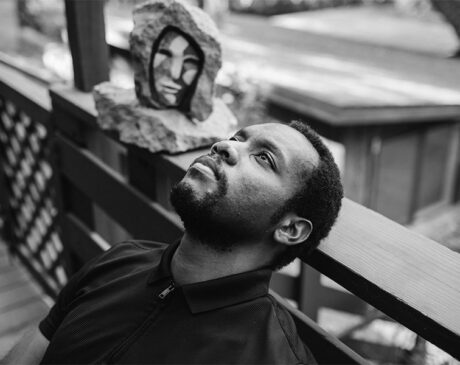Breaking the Cycle of Blame: How to Take Accountability in Your Relationship

As a psychologist who has worked with many couples, I’ve seen firsthand how damaging blame can be in relationships. It creates a divide, fueling resentment, frustration, and a sense of helplessness. When couples get stuck in this cycle, it often feels like there’s no way out. But the truth is, with the right guidance, you can learn to take accountability for your actions and stop the cycle of blame. Let’s dive into how this shift can transform your relationship.
The Harmful Effects of Blame in Relationships
Blame is toxic. When you focus on your partner’s faults, it becomes easy to ignore your own. This habit can lead to emotional distance, poor communication, and an ongoing power struggle.
Emotional Disconnect
Blame fosters emotional disconnection. When you’re constantly pointing fingers, you stop listening to your partner. You focus more on proving them wrong than understanding their perspective. This emotional detachment makes it difficult to maintain a healthy, thriving relationship.
Building Resentment
When blame becomes the norm, resentment follows. Every accusation feels like a personal attack, causing hurt feelings to linger. These unresolved issues pile up over time, making it even harder to address them later.
The Endless Power Struggle
Blame often turns into a power struggle, where both partners try to prove themselves right. Instead of seeking solutions, you end up arguing to win. This constant battle doesn’t resolve the real issues; it only deepens them.
Why Accountability is Key
Accountability is the antidote to blame. By taking responsibility for your actions, you shift the focus from who’s at fault to what can be done. This mindset shift fosters growth, empathy, and connection.
Self-Reflection
Accountability begins with self-reflection. Ask yourself, “What role am I playing in this issue?” It’s important to own up to your mistakes and acknowledge how your actions affect your partner. This level of introspection shows emotional maturity and opens the door for meaningful conversation.
Building Trust
When you take responsibility for your actions, you build trust. Your partner sees that you’re willing to put in the work to improve. Trust is essential for any relationship to thrive, and accountability helps strengthen it over time.
Improved Communication
By taking accountability, you shift the tone of your conversations. Instead of defending yourself, you open up to understanding your partner’s feelings. This approach creates a safe space where both partners can express their concerns without fear of judgment or blame.
Steps to Break the Cycle of Blame
So, how do you stop the blame game and start taking accountability? It’s a process, but here are some key steps you can follow.
1. Recognize the Blame Cycle
The first step is awareness. Notice when you’re falling into the blame cycle. If you catch yourself thinking, “If only they did this differently,” take a moment to pause. Recognizing these thoughts allows you to stop them before they lead to conflict.
2. Practice Empathy
Empathy is a powerful tool in relationships. Instead of assuming the worst, try to understand your partner’s point of view. Ask yourself, “What are they feeling? Why might they be acting this way?” By putting yourself in their shoes, you’re more likely to approach the situation with compassion rather than blame.
3. Own Your Mistakes
Nobody is perfect. When you make a mistake, own it. Apologize when necessary and acknowledge the impact of your actions on your partner. This doesn’t make you weak; it makes you emotionally strong and committed to growth.
4. Use “I” Statements
Instead of saying, “You always do this,” try framing your concerns with “I” statements. For example, “I feel frustrated when…” or “I’m upset because…” This language takes the focus off your partner’s behavior and centers it on your feelings, which leads to a more productive discussion.
5. Seek Solutions Together
Blame divides, but accountability unites. When you both focus on finding solutions instead of assigning fault, you work as a team. Approach conflicts with a problem-solving mindset. Ask each other, “How can we improve this together?”
6. Seek Professional Help
Sometimes breaking the blame cycle requires more than self-awareness and communication. Couples therapy can provide valuable insights and tools to help both partners work through deeper issues. A professional can offer guidance tailored to your unique relationship dynamics.
The Role of Professional Guidance
As a couples therapist, I’ve seen how transformative accountability can be. Therapy provides a neutral space where both partners feel heard, understood, and supported. In my practice, I help couples explore their patterns of behavior, identify areas for growth, and develop strategies for healthier communication.
Working Through Unresolved Issues
Often, blame stems from unresolved emotional wounds. Therapy helps uncover the root causes of these wounds, allowing you to address them in a supportive environment. By healing past hurts, you can move forward with a stronger foundation.
Learning New Communication Tools
In therapy, couples learn new ways to communicate that focus on understanding rather than arguing. This process helps replace blame with empathy and accountability. With time and practice, these skills become second nature, leading to a more harmonious relationship.
Rebuilding Trust and Intimacy
Taking accountability isn’t just about resolving conflicts; it’s about rebuilding trust and intimacy. When both partners commit to growth, they create a deeper emotional connection. Therapy can accelerate this process by providing the tools needed to navigate challenges effectively.
FAQs
1. Why is accountability important in a relationship?
Accountability builds trust and opens the door for honest, empathetic communication. It helps resolve conflicts without the need for blame, which strengthens the relationship.
2. How can couples stop blaming each other?
By practicing empathy, using “I” statements, and taking responsibility for their own actions, couples can break the blame cycle and start working toward solutions together.
3. What role does therapy play in improving accountability?
Therapy provides a neutral environment where both partners can express their concerns, learn new communication skills, and work through unresolved emotional issues.
4. What are “I” statements, and why are they effective?
“I” statements focus on your feelings rather than your partner’s actions. This approach makes discussions less confrontational and more productive.
5. How long does it take to break the blame cycle?
The timeline varies, but with consistent effort and, if needed, professional guidance, couples can start seeing improvements in their communication and relationship dynamic within a few months.
Tired of blaming and arguing in your relationship? Breaking the cycle of blame is essential for building a stronger, more fulfilling connection.
As a couples therapist in Atlanta, I can help you and your partner develop the tools needed to navigate conflicts with empathy, understanding, and compassion.
By practicing accountability, you’ll create a foundation of trust and lay the groundwork for a resilient, satisfying partnership.
Don’t let blame hinder your relationship’s growth.
Contact Dr. Scott Conkright today at (404) 315-7150 to schedule a consultation and start your journey toward a more positive, fulfilling relationship.




// Comments are closed //